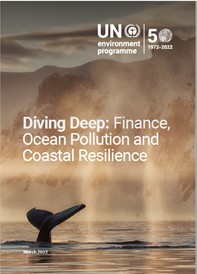Learning from the past to plan for the future
My magnum opus that I’ve been working for the last 5 years has now been published. This uses my own experiences and analytical tools to review the historical evolution of waste and resource management since the first environmental legislation back in the 1970s when I first started working as a consultant in the sector. I then draw on my more recent international policy work to reflect on priorities and challenges over the next decade. My basic thesis is that we need to understand how the sector has evolved in the recent past to plan confidently for the future. I hope it will be widely read, not least to avoid ‘reinventing the wheel’; which is why I have published open access, as part of the 40th anniversary celebrations of ISWA’s peer-reviewed journal Waste Management & Research, rather than as a shiny book sitting behind a paywall.
Update. The paper is now officially published as Waste Management & Research, Volume 41, Issue 12, December 2023, pages 1754-1813. A review by Andy Whiteman appeared in CIWM’s Circular journal.
The full title is: ‘Learning from the Past to Plan for the Future: an Historical Review of the Evolution of Waste and Resources Management 1970-2020 and Reflections on Priorities 2020-2030 – the Perspective of an Involved Witness’. The scope includes both municipal solid wastes (MSW) and hazardous wastes; the journey from end-of-pipe waste management, through the 3Rs (reduce, reuse, recycle) to the circular economy; and the continuing struggles of many developing countries to take even the early steps to bring their wastes under control. Despite impressive progress, around 2.7 billion people worldwide lack access to waste collection; while ~40% of collected MSW is open dumped or burned – a continuing global waste emergency.
So, much remains to be done. Three policy priorities are critical for all countries: access to sustainable financing; rethinking sustainable recycling; and worldwide EPR (extended producer responsibility) with teeth. Extending services to unserved communities (SDG11.6.1) requires a people centred approach, working with communities to provide both quality services and decent livelihoods for collection and recycling workers. Two current opportunities to make real progress are provided by negotiations on an international legally binding instrument to end plastic pollution – extending waste collection and controlled disposal to all would halve the weight of plastics entering the oceans; and on a science-policy panel on chemicals, waste and pollution prevention, modeled on the IPCC for climate change. We need to grasp this ‘once in a lifetime’ opportunity.
